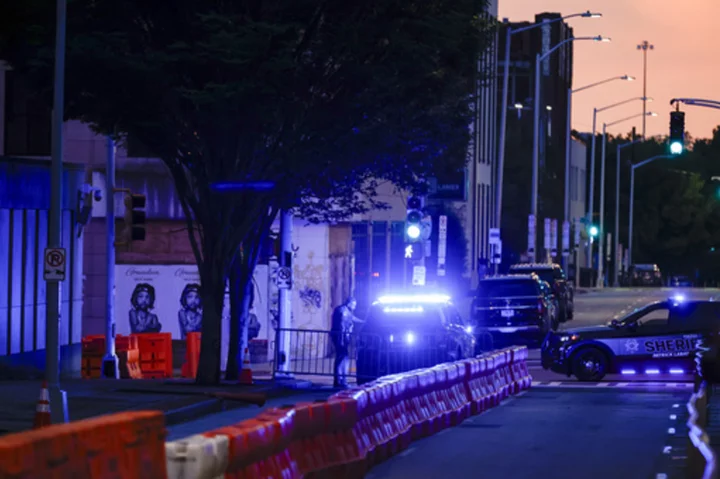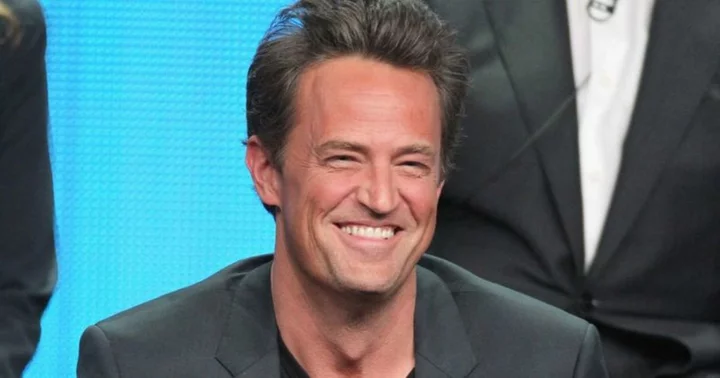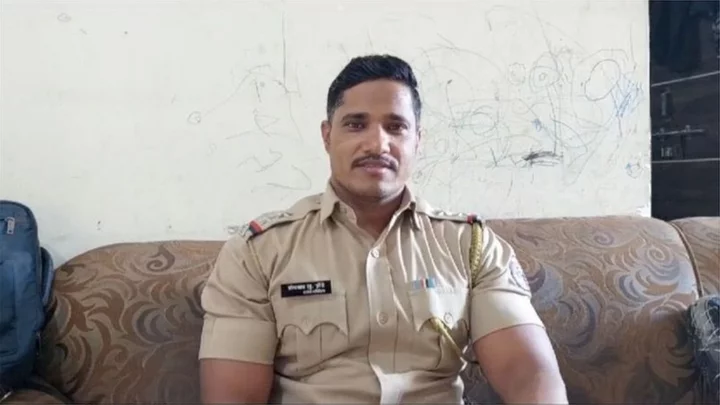Hours before a Georgia grand jury handed down an indictment charging Donald Trump and 18 allies over efforts to overturn his 2020 election loss late Monday, a mysterious document posted on the court's website erroneously suggested the former president had already been charged before the file was quickly deleted.
The posting of the case before grand jurors voted on the indictment — and officials’ failure to explain what happened — gave the former president an opening in court and on the campaign trial to try to paint Fulton County District Attorney Fani Willis’ case as tainted and the criminal justice system as rigged against him.
There is no evidence that the grand jury process was somehow compromised, or that the document was intentionally leaked by prosecutors or court officials. But the court's clerk did little to tamp down speculation, refusing to say how the erroneous filing got online or publicly rule out whether it could have been the result of a hack.
“Trump's lawyers will try to jump on it, as they jump on every possible avenue of defense, and argue that someone leaked it just to embarrass him," said Jeffrey Jacobovitz, a Washington criminal defense attorney.
The confusion over the document thrust the newly sworn in Fulton County courts clerk into the spotlight as reporters descended onto the Atlanta courthouse to get a glimpse at the witnesses called in to testify before the grand jury hearing Willis’ sprawling case. Hours later, cameras followed as the clerk, Che Alexander, handed a stack of indictments — which included the 2020 election case — to Superior Court Judge Robert McBurney.
Shortly after Reuters reported Monday afternoon that the erroneous filing was posted online, Alexander's office released a statement calling the document “fictitious," and said documents without official case numbers “are not considered official filings and should not be treated as such.” But the document that appeared online did have a case number — though it differed from the one ultimately listed on the indictment later handed down.
Asked late Monday specifically about the document, Willis said, “I can't tell you anything about what you refer to.”
The filing posted earlier Monday listed 13 counts against Trump, including Georgia’s Racketeer Influenced and Corrupt Organizations, or RICO, solicitation of violation of oath by public officer and false statements and writings. The final charges unsealed hours later against Trump were identical. The indictment, however, includes charges against not only Trump, but a slew of allies — including attorneys John Eastman and Rudy Giuliani.
It's the fourth criminal case against the Republican former president, who has characterized all the cases against him as a bid to hurt his 2024 bid to return to the White House.
Trump legal team has already suggested it would claim prosecutorial misconduct, saying shortly after the document was posted that “this was not a simple administrative mistake,” but is “emblematic of the pervasive and glaring constitutional violations which have plagued this case from its very inception.”
“The events that have unfolded today have been shocking and absurd, starting with the leak of a presumed and premature indictment before the witnesses had testified or the grand jurors had deliberated and ending with the District Attorney being unable to offer any explanation,” lawyers Drew Findling, Jennifer Little and Marissa Goldberg said in a statement after the indictment was released. “In light of this major fumble, the Fulton County District Attorney’s Office clearly decided to force through and rush this 98-page indictment.”
Trump himself quickly seized on the apparent error to raise money for his 2024 presidential campaign, writing in an email before the indictment came down: "The Grand Jury testimony has not even FINISHED – but it’s clear the District Attorney has already decided how this case will end."
Legal experts said the filing was likely a list of potential charges prosecutors were presenting to the grand jury ahead of Monday's vote that somehow was accidently uploaded on the court's website.
“The grand jury doesn't sit around and write indictments, it's presented to them," said Clark Cunningham, a Georgia State University law professor. “Presumably before this morning, they had drafted an indictment — there's nothing wrong with that.”
And experts said that while Trump may use the apparent mistake in an effort to undermine the integrity of Willis' investigation on the campaign trail, it's unlikely to ultimately have an impact in the courtroom.
“Unfortunately errors happen in today's world with things being done online,” said Stanley Twardy, Jr., a former U.S. attorney for Connecticut. “I don't think this is something that is going to create issues.”
Jacobovitz agreed, adding: “I do not think any argument related to that will be meritorious.”
Prosecutors draft indictments and present them to the grand jury, which meets in secret and ultimately decides whether to hand charges down. Grand juries — made up of people randomly drawn from the community, like juries that decide trials — are designed to safeguard against politically motivated prosecutions, but they've long been criticized by some as little more than a rubber stamp for prosecutors.
Alexander was sworn in as the courts clerk less than two months ago to replace Tina Robinson, who retired in June after 16 years in the role. Alexander appears to have previously campaigned for Willis in her bid for a judgeship in 2018. Her Instagram page includes multiple photos of Willis and her campaign posters, including one with a caption that said Willis “has truly been an inspiration to me and countless others” and included #realfriends.
Pressed about the document before the indictment was handed down, Alexander said: “I mean, I don’t know what else to say."
___
Richer reported from Boston. Associated Press writers Kate Brumback and Jeff Amy in Atlanta contributed to this report.









